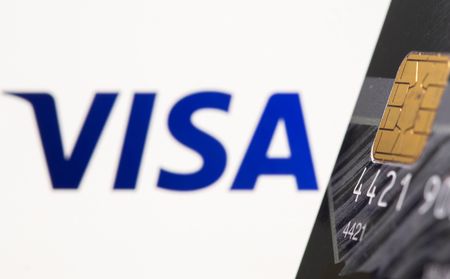BRUSSELS (Reuters) – European Commission President Ursula von der Leyen on Tuesday invited scientists and researchers from the world over to make Europe their home when the Trump administration is threatening to cut federal funding for Harvard and other U.S. universities.
They have been in the administration’s crosshairs, mainly over how they handled pro-Palestinian rallies against Israel’s war in Gaza that roiled campuses last year, but also over issues like DEI programs, climate initiatives and transgender policies.
“Controversial debates at (European) universities are welcome. We consider freedom of science and research as fundamental,” von der Leyen said in Valencia at the 2025 Congress of the conservative European People’s Party, the largest of the European Parliament.
“Not only because it is a core value for us but also because this is how excellence and innovation thrive,” she said.
“This is why Europe is open to the best and brightest. This is why we will make proposals to help them ‘Choose Europe’. Because we want scientists and researchers from all over the world to make Europe their home – and to make Europe the home of innovation again.”
Harvard scientist Donald Ingber said earlier this month he knew of post-doctoral applicants who are now turning down research positions in the U.S. that they had accepted because they are afraid to live in America as foreigners. They are turning to China or Europe to carry out their work.
During her speech, von der Leyen sought to contrast the 27-nation European Union with the U.S. by touting it as a role model for fair and rules-based international trade.
After weeks of threats, Trump announced on April 2 a series of broad “reciprocal tariffs” on goods imported to the United States from most other countries. They included a 20% tax on EU imports that was later lowered to 10% under what he called a 90-day pause following a rout in U.S. stock markets.
The Trump administration’s tariff policy – which it says aims to tackle unfair trade practices and re-shore manufacturing – has exacted a major toll on companies, forcing many to cut spending, upending supply chains and making it hard to plan beyond the immediate term.
“Global markets are shaken by the unpredictable tariff policy of the U.S. administration. U.S. tariffs on the rest of the world are at their highest in a century,” von der Leyen said.
“But in every crisis there is also an opportunity (…) Now the world of trade is turning towards us (…) They all want to deal with us. Because we are fair, reliable and we play by the rules. So let us stay the course, cool-headed and united. Because that is who we are. That is the European way of trade.”
(Reporting by Benoit Van Overstraeten; editing by Mark Heinrich)







